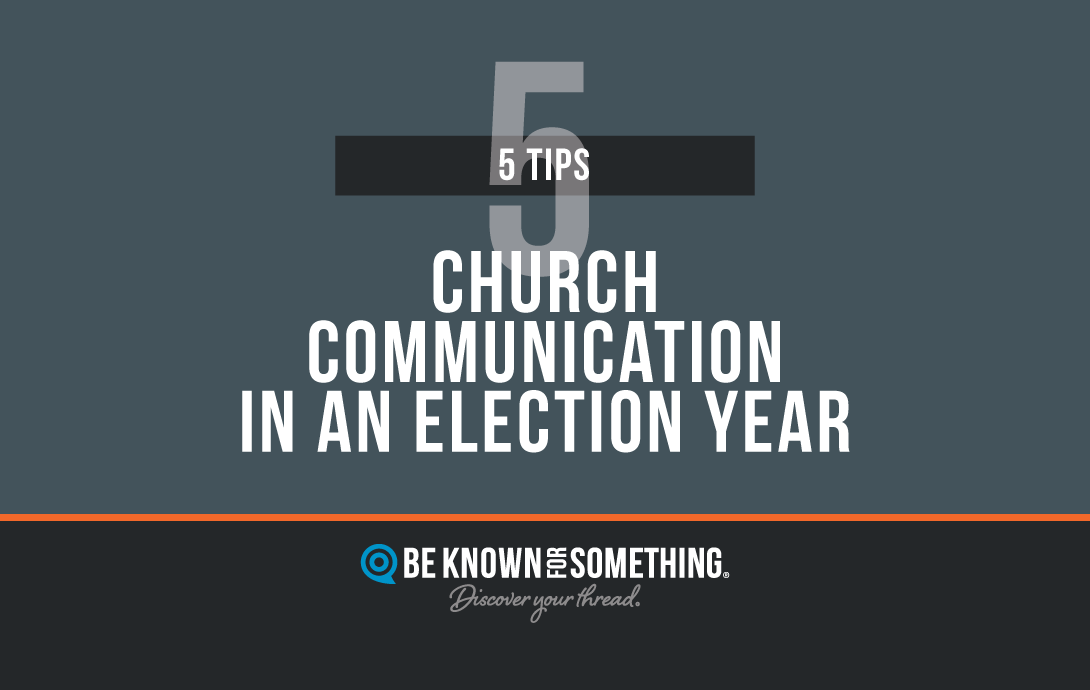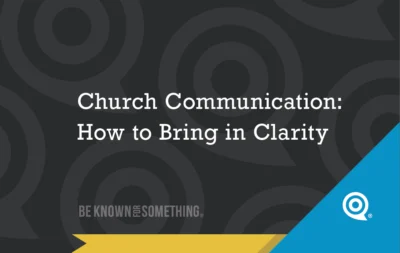Church Communication Tips in an Election Year

Again, we’re in another election year. Since all elections should be a critical decision point for everyone, the church needs to tackle our discourse as politics impacts all of our lives. Remember, the local church is a fellowship of Christ-followers doing life together.
Elections have consequences for the community and your congregation. Therefore, our churches need to contribute prayerful guidance leading up to elections but with cautionary communication fences. Here are 5 tips for communicating Biblically in an election year:
- Keep the Gospel the main thing. Amidst political tensions, prioritize the Gospel. In 1 Corinthians 15:1-2, Paul underscores the Gospel’s importance because it brings eternal salvation. Regardless of political affiliations, Romans 1:16 also emphasizes the power of the Gospel. Like the early church (Acts 5:42), they steadfastly proclaimed Jesus despite opposition. So, maintain focus on the Gospel in all your communication and channels, guided by 2 Timothy 4:2. By keeping the Gospel central, you offer hope and transformation to all. This is far more important than temporal politics which can be a barrier.
- Preach the Bible practically, not political policy. During political ambiguity, offer your church audiences a biblical perspective on relevant issues. Speak truth not opinion. Psalm 119:105 declares, “Your Word is a lamp for my feet, a light on my path.” Ground your church and personal communication in the timeless truths of Scripture, helping your congregation discern how to apply God’s principles to contemporary political policy. Give guidance on how to prioritize biblical values in their decision-making process and consider how to do this across all your communication channels (i.e. social media, stage, website, etc.).
- Emphasize unity amidst diversity. In times of political polarization, it’s easy for divisions to arise within congregations. However, as followers of Christ, we are called to Gospel unity despite our differences. Ephesians 4:3 reminds us to “make every effort to keep the unity of the Spirit through the bond of peace.” Encourage your congregation to prioritize love and understanding over political disagreements. Remind them that our common faith in Christ transcends any political affiliation.
- Create rules for respectful dialogue. Encourage open and respectful dialogue within your congregation, where differing viewpoints are acknowledged and valued. Proverbs 18:13 advises, “To answer before listening — that is folly and shame.” Encourage active listening and empathy, reminding your congregation that everyone’s perspective should be heard and respected. Model this behavior in your own interactions, demonstrating humility, and a willingness to learn from others. Note: When you drift outside of the truth of scripture into personal political ideas, always communicate like you may be wrong. Above all, be known for love. Consider parameters or rules for public discourse (i.e. social media) when interacting with your community who comment with different political opinions.
- Lead by example. As a church communicator or Pastor, your words and actions carry significant weight within your congregation. Titus 2:7-8 instructs, “In everything set them an example by doing what is good. In your teaching show integrity, seriousness, and soundness of speech that cannot be condemned, so that those who oppose you may be ashamed because they have nothing bad to say about us.” Be intentional about modeling Christlike behavior in your communication, exhibiting humility, grace, and wisdom. And, like you, encourage everyone to pray for all leaders of our great country.

Want 25 Game-Changing Resolutions?
Related Posts

Church Communication: How to Bring in Clarity
In the new year, pastors often set goals. They want to grow attendance, launch new ministries, or strengthen discipleship. However,

Church Branding: Why Every Church Is Known for Something
Everyone is known for something, including your church. This is the heart of church branding. The real question isn’t whether

Church Welcome Video Tips Every Pastor Should Use
Your church welcome video is often the first message people experience before they ever step into your building. Long before

